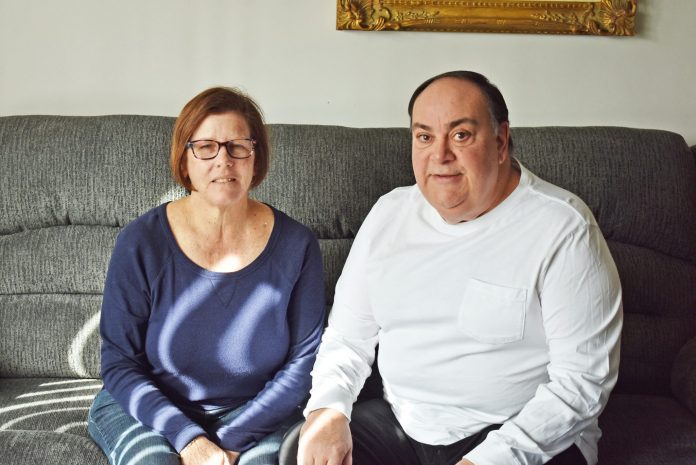For 5-year-old Dominic Barilone, growing up in his grandparents’ home is all that he remembers. His father would visit the home of Andrea and Dominic (his grandfather) Barilone during periods when he was sober and able, but his grandfather said those times would often turn “negative.”
His father, who is the son of Andrea and Dominic, struggled with a heroin addiction for the last years of his life. They took Dominic into their home in 2014 to give him a stable home.
“Watching my grandson see what was going on little by little as he had grown, he had realized when his dad was here to visit most of the time it would turn into something negative,” Dominic said. “He would be surrounded in an atmosphere of not wanting to change. We were always concerned at any moment the retrigger could happen.”
Andrea and Dominic chose to make heavy financial sacrifices so they could raise their grandchild while seeking help for their son. At one point his rehabilitation required him to live in Florida for six months, and Dominic would have to pay for frequent flights there and back as part of the program.
“Going forward was difficult because we always had the carrot dangling that he would turn the corner,” Dominic said. “But that turn is very difficult.”
They said they were the kind of parents who “always dreaded the phone call,” but it came to them last summer.
“It was tough on Dominic knowing his father was not going to be coming back,” Andrea said.
Andrea and Dominic are not alone in their experience, according to the Philadelphia Corporation for Aging. There are about 3,400,000 thousand grandparents raising their grandchildren nationwide, 13,400 of whom live in Philadelphia, said Cheryl Clark, director for the PCA’s Caregiver Support Program.
“What we know is the epidemic that is existing right now with opiates and other drugs is really raising the numbers of older relatives or grandparents caring for the relative children, among things like incarceration and death of a parents,” Clark said.
The Caregiver Support Program reimburses grandparents or older relatives raising a child for a variety of services, including child care, counseling, recreational and extracurricular activities and school supplies to provide caregiver relief.
While Andrea was working as a crossing guard, a friend mentioned the program to her. They are using the program to reimburse his involvement at the Northeast Racquet Club and Fitness Center, where he participates in sports. They will also be able to use the reimbursements for his future involvement in other sports.
“He’s able to go there for different sports,” Andrea said. “For people who can’t find a way to pay for any of this stuff, it’s a great program. The child is getting to do something you know they should be doing. He wants to play a lot and since we’re older sometimes we just can’t keep up with what he wants to do.”
Eligibility for the program requires the caretaker to be 55 or older, that the caregiver and child live in the same residence and are biologically related and they have a household income of up to 380 percent of the federal poverty level.
For more information on the program, visit PCACares.org or call 215-765-9040.
“The most important advice to give someone is not to be embarrassed of what happened to your family and what happened to your life,” Dominic said. “It’s a disease not only an addictive person suffers day by day, but it also feels like that for the family members, too. It does happen to everyone’s family, but there are ways they can get addressed. Until you actually live through it, you just don’t know where to turn or where to go.” ••





